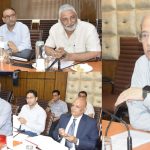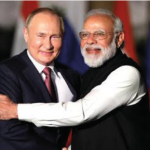Even in this digital-first era, the enduring appeal of books is undeniable. Across India, more young people are discovering the joy of reading in classrooms, homes, libraries, and increasingly, through mobile and digital platforms. Over the years, multiple research studies have shown children enjoy being read to, and a majority of parents believe reading books helps their child become more curious, imaginative, and empathetic. Children who read not only perform better in school, but also exhibit stronger mental, physical and social well-being eventually contributing towards nation building – a Viksit Bharat.
Reading is far more than a leisure activity. It is an act of imagination, a tool of empowerment, and a pathway to understanding oneself, our communities, and the world. Books offer what no algorithm can, the ability to pause, reflect, and connect across generations, cultures, and geographies.
In India, where language, culture, and tradition vary every few hundred kilometres, reading, particularly in one’s mother tongue, becomes a profoundly personal act. It nurtures identity, fosters inclusivity, and keeps oral and written legacies alive. Guided under the vision of the Hon’ble Prime Minister Shri Narendra Modiji, the New Education Policy (NEP) 2020 rightly prioritises foundational literacy and multilingual learning, reinforcing the role of reading as essential to India’s goal and commitment for Viksit Bharat @2047.
Under the Government of India’s Ministry of Education, the National Book Trust, India (NBT), has long championed this vision across the length and breadth of the country ensuring that books are accessible, affordable, and available to every Indian, in every language. At the heart of this effort lies a transformative national agenda: Make India Read. More than an initiative, this is a vision to create a reading revolution that empowers citizens, builds communities, and strengthens engagement. A well-read individual is an informed citizen. A well-read society is an empathetic society. As we shape our collective future, we must embrace reading as a critical tool not only for learning but also for national development. A book in every hand, a story in every home – this is how we build not just literacy, but collective leadership.
Through our multilingual publishing, mobile libraries in tribal belts, and book fairs across tier-II and tier-III cities along with hosting world’s largest book fair each year, we have worked to ensure that the joy of reading is not a privilege, but a right. Our digital initiatives like the National Digital Library of India and Rashtriya e-Pustakalaya, make thousands of titles accessible to readers of all ages, languages, and abilities, thus contributing to the goal of a well-read society made up of well-read citizens.
Through the ages, books have retained the best of ourselves – culturally and artistically. From Kalidasa to Premchand, from Chanakya to Tagore, our writers have documented our civilizational journey, not merely writing about events, but also dreams, dilemmas, and deeper truths.
Literature is not just a mirror of society; it is a map of where we could go. That is why public literary spaces such as book fairs, reading festivals, and community libraries play such a vital role as civic spaces. Whether through the intricacies of Madhubani painting, the ragas of Hindustani music, or the musings of the Upanishads, books ensure that India’s artistic expressions remain alive and evolving. Literature and arts are not only heritage to be appreciated, but they are also legacies to be passed on to generations ahead. A good book survives through generations, speaking to a reader in 2050 as eloquently as it spoke to a reader in 2025.
This spirit finds its most heartfelt expression in the Chinar Book Festival, returning this August to the breathtaking valley of Kashmir. Nestled among the timeless chinars of Srinagar, this festival is more than a literary gathering – it is a statement of cultural pride and creative renewal. After a resoundingly successful first edition in 2024, which saw participation from hundreds of publishers and lakhs of visitors, the 2025 festival promises an even grander celebration of books, language, culture and artistic heritage.
In alignment with the “Make India Read” vision, the Chinar Book Festival aims to make reading visible, joyful, and participatory. It is not only a literary platform, it is a cultural movement that brings together children, educators, artists, publishers, families, elders and communities to share, learn, and grow.
This sharing of knowledge and creativity is vital. There is a pressing need to record, store and celebrate living tradition. Taking a note of this, National Book Trust, India has been collaborating with researchers, artists, and local people to bring out books that celebrate India’s heritage.
The Chinar Book Festival invites people from all walks of life – readers, writers, educators, artists, and families to experience books not only as stories but as mirrors of belonging. It is a platform where Kashmir’s rich literary legacy meets contemporary voices. It is where children discover their first storybooks, where elders reconnect with timeless classics, and where conversations bloom under the shade of centuries-old trees.
In a place where every word carries history and every silence holds meaning, the act of reading becomes an act of remembering and reimagining. It affirms that Kashmir is not merely a place rather it is a beautiful story waiting to be read, written, and shared. As we prepare to open the next chapter of this unique literary celebration, let us reaffirm our shared commitment to reading, not just as a habit, but as a living national tradition that shapes who we are and what we strive to become.
The National Book Trust, India, under the Ministry of Education, invites everyone to join us beneath the chinars to turn pages together, to exchange stories, and to carry forward the enduring dream of a well-read India that is powered by well-read citizens.
(The Author is Director, National Book Trust, India. Courtesy: PIB)










